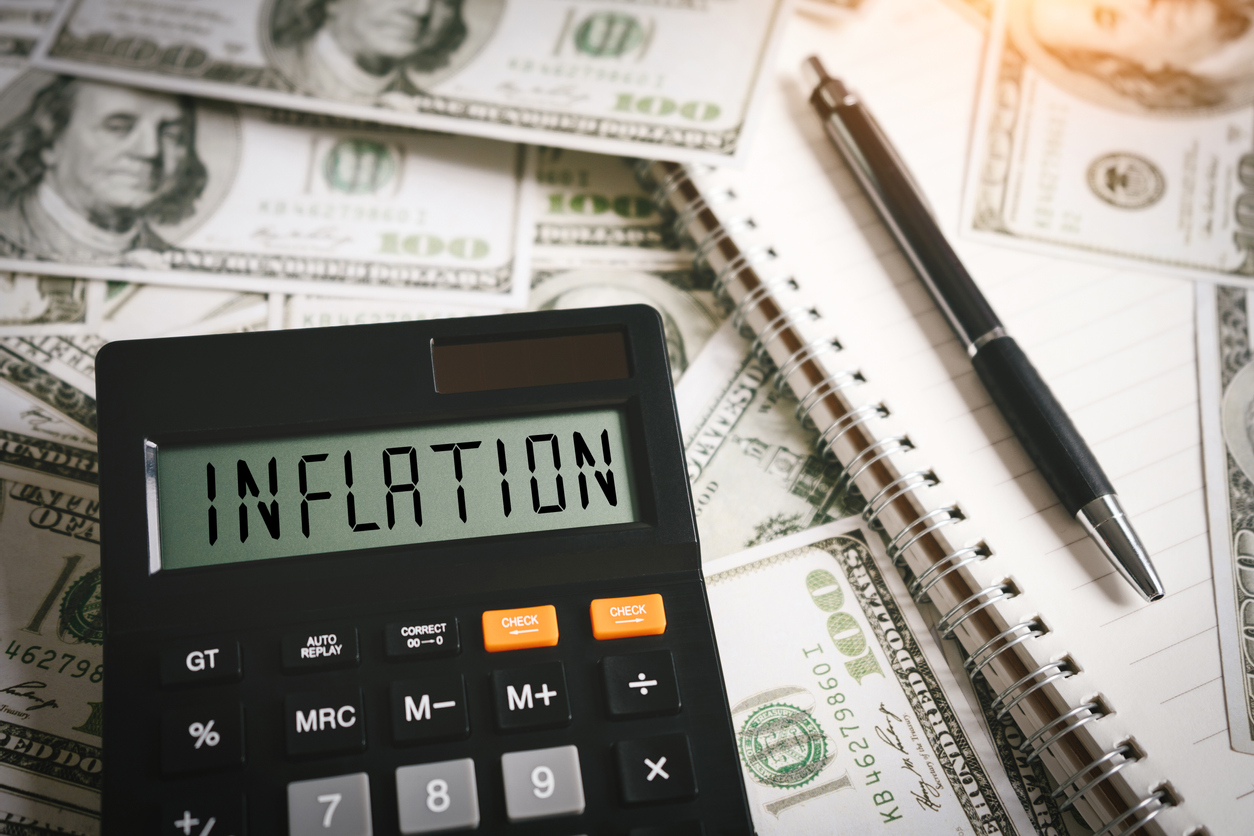
iStock.com/Khanchit Khirisutchalual
Rising Inflation Concerns Rattle Markets and Policymakers
April 15, 2024
Inflation is on the rise, catching many by surprise as prices climb stubbornly higher. Markets, investors, and economists alike are grappling with the unexpected inflation pressures that have marked the start of 2024.
At the beginning of the year, expectations were different. The Federal Reserve was expected to cut interest rates frequently to support the economy. However, this outlook has shifted dramatically in light of recent economic developments.
Throughout the last week, negative economic news dominated headlines. Data from the first three months of the year paints a concerning picture of inflation. Whether it’s prices at the store or wholesale costs, inflation remains persistent. While it might not be as rapid as in 2022, it shows no signs of slowing down. Future expectations of inflation are also rising.
The stock market reflected these concerns, with the Dow Jones Industrial Average falling by 2.4% over the week, erasing nearly all gains made this year. The uncertainty was further fueled by reports of potential geopolitical tensions, adding to the market’s instability.
Despite these challenges, the Federal Reserve remains cautiously optimistic. While acknowledging the higher inflation readings, Fed officials have not signaled alarm. They still anticipate interest rate cuts later this year, though the number of expected cuts has reduced from initial forecasts.
Economic indicators throughout the week highlighted the inflationary pressures. The New York Fed’s consumer survey indicated rising expectations for rent and other essential costs. The National Federation of Independent Business reported record-low optimism among its members due to inflation concerns. Furthermore, both consumer and wholesale price indexes showed higher-than-expected inflation rates.
The Federal Reserve’s focus, however, remains on the Personal Consumption Expenditures (PCE) price index, which has not been released for March yet. This index differs from the Consumer Price Index (CPI) as it adjusts for changes in consumer behavior and places less weight on housing costs.
Despite the challenges posed by inflation, the economy has shown resilience. Employment and macroeconomic growth have remained relatively stable. However, concerns linger about the sustainability of these conditions as inflation persists.
Ultimately, the rising inflationary pressures have shaken markets and policymakers. While the Federal Reserve remains committed to its inflation targets, the path forward appears uncertain. As the economy continues to adapt to these challenges, monitoring inflation and its impacts will be crucial in shaping future policy decisions.
Recent News
US Vehicles Required To Carry Better Automatic Braking in 5 Years
Automatic emergency braking will have to be standard on all U.S. vehicles by 2029.
Coca-Cola Beats Expectations, Raises Revenue Forecast
Coca-Cola recently released its quarterly earnings report, surpassing predictions from analysts and adjusting its outlook for full-year organic revenue.
Walmart Unveils New Premium Brand Bettergoods To Broaden Appeal
Walmart’s launch of Bettergoods is the retail giant’s latest attempt to appeal to younger consumers.
Peacock Streaming Service To Raise Subscription Prices by $2 Before Summer Olympics
Ahead of the Olympics in Paris, Comcast’s NBCUniversal plans to raise the monthly subscription price of its streaming service, Peacock, by $2 this summer.

